Yóyes means ‘working’. It is the ‘-ing‘ (‘progressive’) form of yó:ys – ‘to work’.


Yóyes means ‘working’. It is the ‘-ing‘ (‘progressive’) form of yó:ys – ‘to work’.
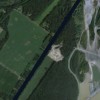
Wolích is a place name. Several places now bear this name, but in her stories Elizabeth appears to be referring to a whistle stop along the railway tracks on Seabird Island.
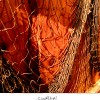
Swéltel is the general term for a ‘net’. You can use this for any kind of net (there are also other words for specific kinds of nets).

Xepá:ltel is the word for a ‘wood carving knife’.
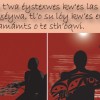
Is t’wa eystexwes kw’es las lex̲éywa tl’o su lóy kw’es ew hamámts o te sth’óqwi means ‘I guess he liked to go torchlighting, because he was just giving away the fish’.

X̲ét’kw’els means ‘to carve wood’.
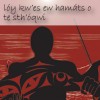
lóy kw’es ew hamámts o te sth’óqwi means ‘(he) was only just giving away the fish’. The ‘he’ is just understood from context.
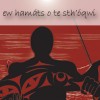
ew hamámts o te sth’óqwi means ‘(he) was just giving away the fish’. ‘He’ is just understood from context, as is common in the language.

Hamámt means ‘giving away’.
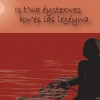
Is t’wa eystexwes kw’es las lex̲éywa means ‘I guess he liked to go torchlighting.’. You could also translate it as ‘He must have liked to go torchlighting’.

Is tw’a… means ‘I guess…‘ or ‘It must be that…’.
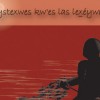
Eystexwes kw’es las lex̲éywa means ‘He liked to go torchlighting’.
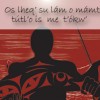
Os lheq’ su lám o mámt tútl’o is me t’ókw’ means ‘So he would always just go and gave them away when he got home’.

Eystexw means ‘to like (it)’, or ‘to enjoy it’. You use it to talke about liking something specific, e.g. Tsel éystexw te slhop – ‘I like the soup’.

Su lám o mámt tútl’o is me t’ókw’ means ‘So he just went and gave them away when he got home’.
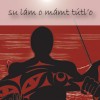
Su lám o mámt tútl’o means ‘So he just went and gave them away’.
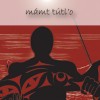
Mámt tútl’o means ‘He gave them away’.

Mámt means ‘to give away‘.

T’ókw’ means ‘to travel home’. Elders commonly add lam (‘go‘) or me (‘come‘), to make lam t’ókw’ for ‘go home’, or me t’ókw’ for ‘come home’.
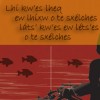
Lhi kw’es lheq ew lhíxw o te sxélches, láts’ kw’es ew léts’es o te sxélches means ‘Sometimes his catch is just three, other times his catch is just one’.
